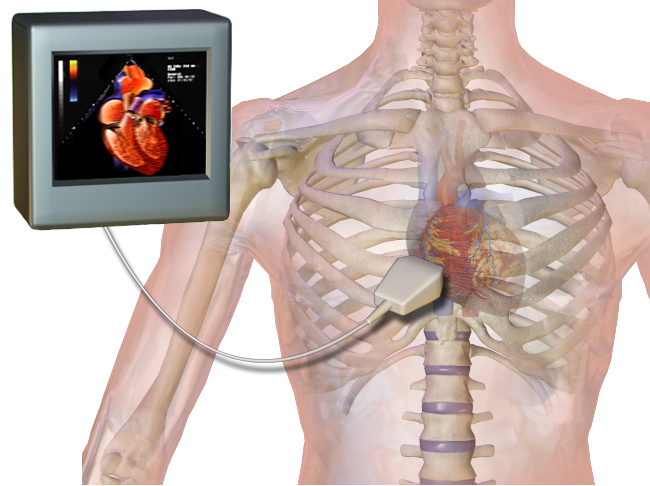An echocardiogram is a non-invasive imaging test that uses sound waves to create detailed pictures of your heart’s structure and function. It provides valuable insights into your cardiovascular health. Knowing what an echocardiogram reveals allows you to have more informed discussions with your doctor.
Understanding Echocardiograms
An echocardiogram uses ultrasound technology to capture real-time images of your heart. During the procedure, a technician places a small device called a transducer on your chest. This device emits high-frequency sound waves that travel through your body, bouncing off your heart structures and returning to create detailed images on a monitor.
The test typically takes 30 to 60 minutes and causes no discomfort. You’ll lie on an examination table while the technician moves the transducer across different areas of your chest to capture various views of your heart. The sound waves are completely safe and produce no radiation.
Evaluating Heart Function
Healthcare providers use echocardiogram results to evaluate several aspects of heart function and identify various cardiovascular conditions.
- Assessing Muscle Function: The test evaluates how well your heart muscle contracts and relaxes with each heartbeat. This provides insight into your heart’s pumping ability, measured as ejection fraction—the percentage of blood pumped out of the heart’s main chamber with each beat.
- Examining Valve Health: Echocardiograms provide detailed views of your heart’s four valves to assess whether they open and close correctly. The test can detect valve issues, such as stenosis (narrowing) or regurgitation (leaking), which may affect blood flow.
- Measuring Chamber Size: The images show the size of your heart chambers and the thickness of your heart walls. Enlarged chambers or thickened walls often signal cardiovascular conditions that may need treatment or monitoring.
- Tracking Blood Flow: Doppler technology in echocardiograms measures the velocity and direction of blood flow through your heart and major vessels. This helps identify abnormal flow patterns, such as blockages or circulation problems.
Regular echocardiograms are a valuable tool for monitoring heart health. They provide detailed insights into the structure and function of your heart. This empowers both patients and healthcare providers to take proactive steps toward maintaining cardiovascular well-being.
Diagnosing Heart Conditions
Echocardiograms are valuable tools for diagnosing various cardiovascular conditions. They help detect congestive heart failure, a condition where the heart struggles to pump blood effectively. An echocardiogram can show reduced heart function and help identify the underlying cause. This information allows for more tailored treatment decisions.
While echocardiograms cannot directly visualize coronary artery disease, they can reveal areas of the heart muscle not receiving enough blood flow. This can provide insights into potential blockages. Echocardiograms are also highly effective in diagnosing valvular heart disease. This includes conditions like valve narrowing, leakage, or improper closure.
These tests offer detailed images of valve structure and function. This makes it easier to assess the severity of a problem and plan appropriate treatment. Echocardiograms play a role in evaluating heart health. They are key in managing a wide range of cardiovascular diseases.
Take Care of Your Heart
An echocardiogram provides valuable insights into your heart’s condition, enabling your healthcare team to make informed decisions about your care and treatment. The detailed images and measurements support preventative cardiology to maintain long-term heart health. If your doctor recommends this test, it’s a chance to learn more about your heart. Early detection through an echocardiogram can identify issues when they’re most treatable.
- Exploring Effective Approaches to Substance Treatment and Recovery
- The Connection Between Arthritis and Chronic Pain Management
- The Role of Internal Medicine in Managing Diabetes
- The Diverse Specializations Within Ophthalmologists and Their Impact on Eye Health
- Exploring the Role of Sports Medicine in Injury Prevention

